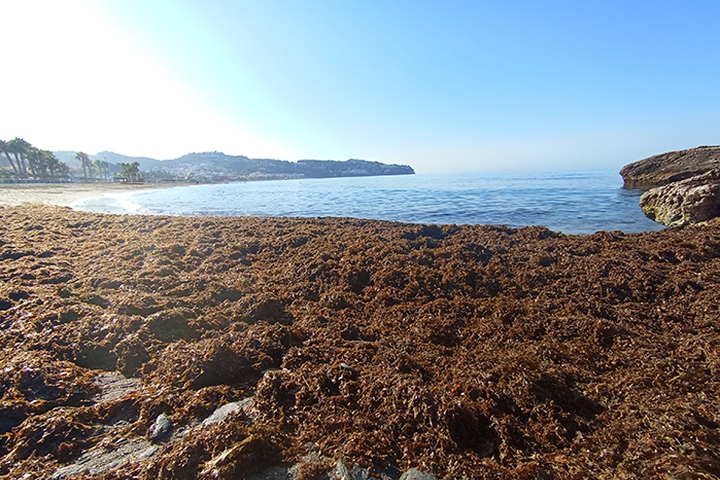RESEARCH
Aimplas to investigate algae-to-plastics potential as part of Ruguplas initiative
— By Plasteurope.com correspondent —
Spanish plastics technology centre Aimplas (Valencia; www.aimplas.net) has joined the Ruguplas project, which will evaluate the technical feasibility of using an invasive form of algae found along the coasts of the Strait of Gibraltar for the production of bioplastics. An additional objective is to raise awareness among local fishing communities of the harm caused by marine litter.
Spanish plastics technology centre Aimplas (Valencia; www.aimplas.net) has joined the Ruguplas project, which will evaluate the technical feasibility of using an invasive form of algae found along the coasts of the Strait of Gibraltar for the production of bioplastics. An additional objective is to raise awareness among local fishing communities of the harm caused by marine litter.
 Can this invasive form of algae be used to produce bioplastics? (Photo: Aimplas) |
The growing presence of the algae known as Rugulopteryx okamurae negatively impacts habitats and marine species, damages fishing equipment, and, by accumulating on beaches in the region, affects the local tourism industry.
People behind the 18-month initiative said it also aims to bolster relationships between the fishing sector and environmental groups through what they called “awareness-raising and training actions on marine litter, and the alternatives to its generation and/or abandonment in the sea”.
Related: Aimplas launches project to increase use of reclaimed plastics in automotive parts
Meanwhile, Aimplas has signed a framework collaboration agreement with the Valencian Graduate School and Research Network of Artificial Intelligence (ValgrAI, Valencia; www.valgrai.eu), which will promote AI-related R&D and understanding of how it can be applied across the plastic materials sector.
According to ValgrAI, the agreement establishes a framework that will push initiatives including the promotion of joint artificial intelligence projects, implementation of courses, training programmes, seminars, and conferences.
“The common goal is to generate a significant impact in the field of artificial intelligence applied to plastic materials, with a focus on innovation and sustainability,” it added.
22.10.2024 Plasteurope.com [256353-0]
Published on 22.10.2024
